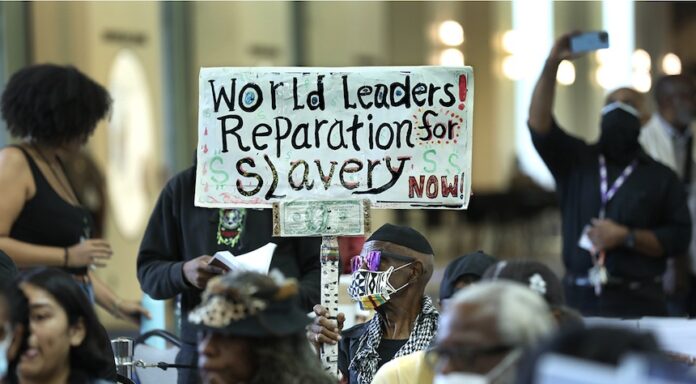Tuesday’s meeting of the San Francisco Board of Supervisors was devoted to official discussions about reparations. $5 million will be paid for each eligible Black adult living in the city.
Despite the fact that Stanford University’s Hoover Institution had calculated that reparations would cost non-Black families at least $600,000., the board supported the idea of reparations “unanimously” during the meeting.
Members of the San Francisco Board also expressed interest in other forms of reparations for the city’s roughly 50,000 Black residents, including a guaranteed annual income of $97,000 for 250 years and a home “for just $1 a family,” according to the Associated Press.
Although San Francisco has not allowed slavery, some city supervisors argued that the “journey to justice” was more important than precise calculations.
Eric McDonnell, San Francisco’s African American Reparations Advisory Committee chair, said that there wasn’t a mathematical formula. The committee was on a journey to what could be a significant enough investment for families to put them onto this path of economic well-being and growth that will replace chattel slavery and all its policies.
In the draft reparations plan, it was also stated that although California and San Francisco never “formally adopted” slavery policies, white supremacy, and other forms of oppression are valid reasons for mass reparations.
The draft proposal stated that “While neither San Francisco nor California has formally adopted chattel slavery,” the tenets of segregation and white supremacy, systematic repression, and exclusion of African-Americans were codified through legal, extralegal actions, social codes, and judicial enforcement.
The draft proposal stated that “although neither San Francisco nor California has formally adopted chattel slavery,” the tenets of segregation and white supremacy, systematic repression, and exclusion of all races were codified through legal and other actions, social codes, and judicial enforcement.
The proposal stated that a lump sum payment would be made to compensate for the decades of harm suffered by the population. It will also redress economic and opportunity loss that Black San Franciscans collectively have suffered as a result of both intentional and unintended consequences of city policy.
Others officials opposed the multimillion-dollar recommendations for reparations and called them “unserious.”
John Dennis, chair of the San Francisco Republican Party, stated to the AP News that “this conversation we’re having is completely unserious.”
“They just put a number together, there is no analysis.”
Dennis said, “It seems absurd, and it also appears that this city is the only one where it could pass.”
But some members of the San Francisco Board of Supervisors fired back at critics, including among local constituents.
“Those of my constituents who lost their minds about this proposal, it’s not something we’re doing or we would do for other people. It’s something we would do for our future, for everybody’s collective future,” Supervisor Rafael Mandelman said.
Aaron Dan Peskin, President of the San Francisco Board of Supervisors, did not respond immediately to a request for comment.


